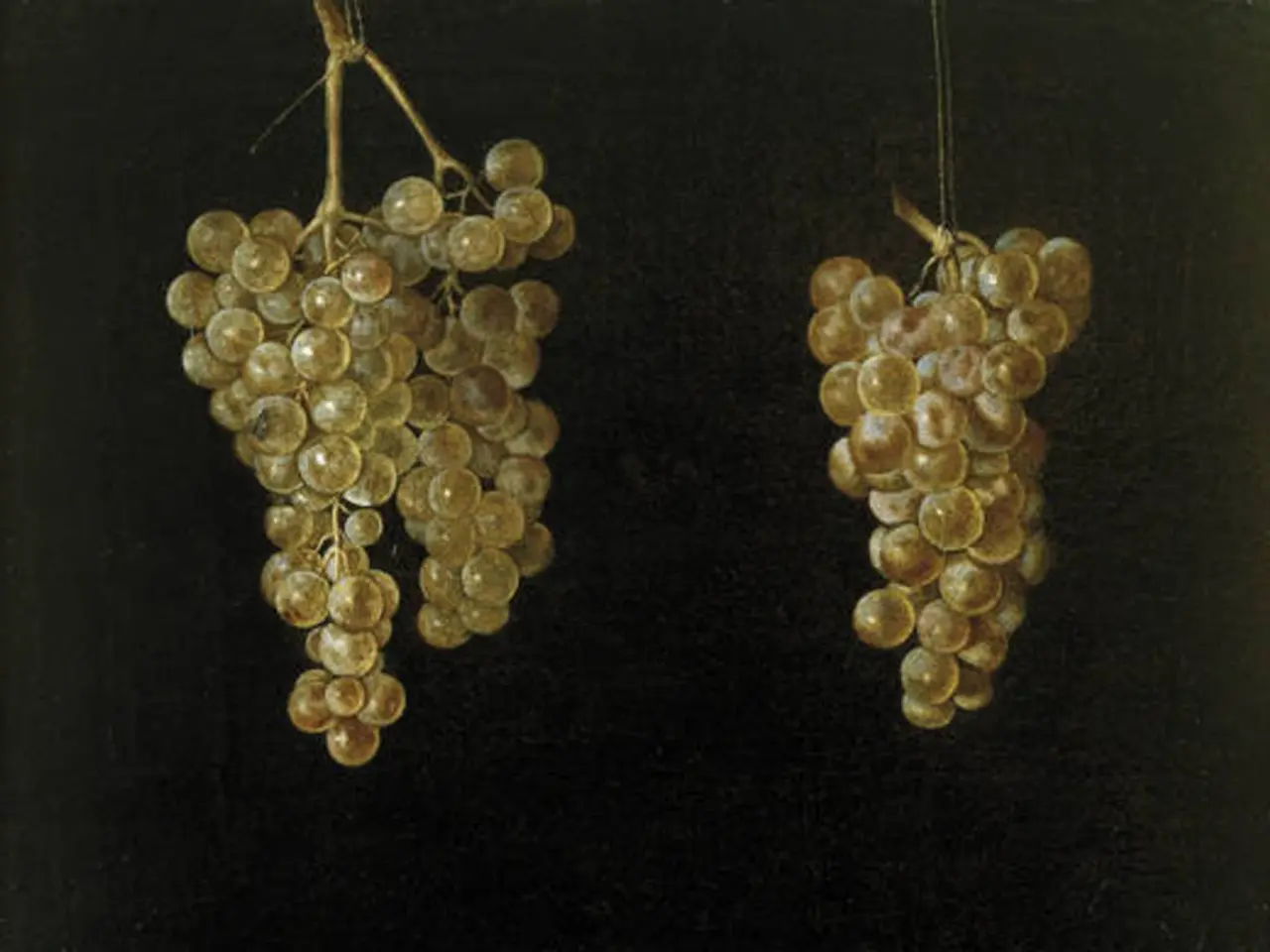Converting vineyard leftovers into biodegradable fasteners
=================================================================================
In a groundbreaking move towards sustainability, Crown research institute Scion, in collaboration with Villa Maria Wines, has developed biodegradable vine net clips using grape marc and bioplastics. This innovative solution aims to reduce waste and environmental impact in the New Zealand wine industry.
The team, led by Scion scientist Dr Stephanie Weal, has created a bioplastic formulation for the vine net clips using grape marc, a biomass waste product from the wine industry, and PLA (polylactic acid), the least expensive and most widely available bioplastic made from renewable resources like sugar cane or corn starch.
Market studies estimate that around 16.8 million plastic clips are used each year in the New Zealand wine industry. The traditional clips, used to hold nets in place over ripening grapes, are uneconomic to collect and recycle, leaving a growing pile of non-biodegradable clips in vineyards around the country.
The addition of PLA to the formulation gives the resulting bioplastic formulation the necessary mechanical strength for the application. The clips, marketed as PolyDegradeTM Vine Clips, are designed to degrade more rapidly than traditional plastic clips, addressing a significant waste issue in the industry.
The Rethinking Plastics in Aotearoa New Zealand report (2018-2024) by the Office of the Prime Minister's Chief Science Advisor highlighted the need for innovation to find alternatives to single-use plastics. In June 2021, the New Zealand Government announced a plan to phase out plastics that are difficult to recycle and launched a Plastics Innovation Fund to support projects that reimagine how plastics are made, used, and disposed of.
Scion worked with Villa Maria Wines to develop this bioplastic vineyard net clip, identifying net clips (used as bread bag closures) as one such opportunity in the viticulture industry for potential uses of biopolymers. The addition of marc to the bioplastic formulation for the vine net clips results in more rapid degradation than PLA or bioplastic alone.
In industrial composters, PLA will break down in 180 days under certain conditions, but in a domestic compost bin or tightly packed landfill, it could take from 100 to 1,000 years to break down into carbon dioxide and water.
Scion teamed up with Elastomer Products to help commercialise the vine clip. The institute's Biopolymers and Chemicals division specializes in formulating bioplastics for a wide range of applications, including replacements for single-use plastics.
For more detailed and updated information, you may consider checking Scion’s official website or recent press releases from Villa Maria Wines, industry publications on sustainable viticulture, or scientific articles on bioplastics derived from grape marc. You could also explore research databases or contact Scion directly for the latest data on this innovation.
This article is adapted from the article by Rural Delivery researcher and director Kirsty Cooper. The Science Learning Hub thanks Showdown Productions for the use of the article and the accompanying video clip.
- The collaboration between Scion and Villa Maria Wines resulted in the creation of biodegradable vine net clips, an innovative solution aimed at reducing waste in the New Zealand wine industry.
- Market studies indicate that around 16.8 million plastic clips are used annually in the New Zealand wine industry, with traditional clips posing a significant waste issue due to their non-biodegradable nature.
- To address this issue, Scion scientist Dr Stephanie Weal formulated a bioplastic for the vine net clips using grape marc and PLA, a biodegradable material made from renewable resources.
- The resulting bioplastic, marketed as PolyDegradeTM Vine Clips, offers rapid degradation, making it a promising alternative to traditional plastic clips in the wine industry and a step towards sustainable living.





